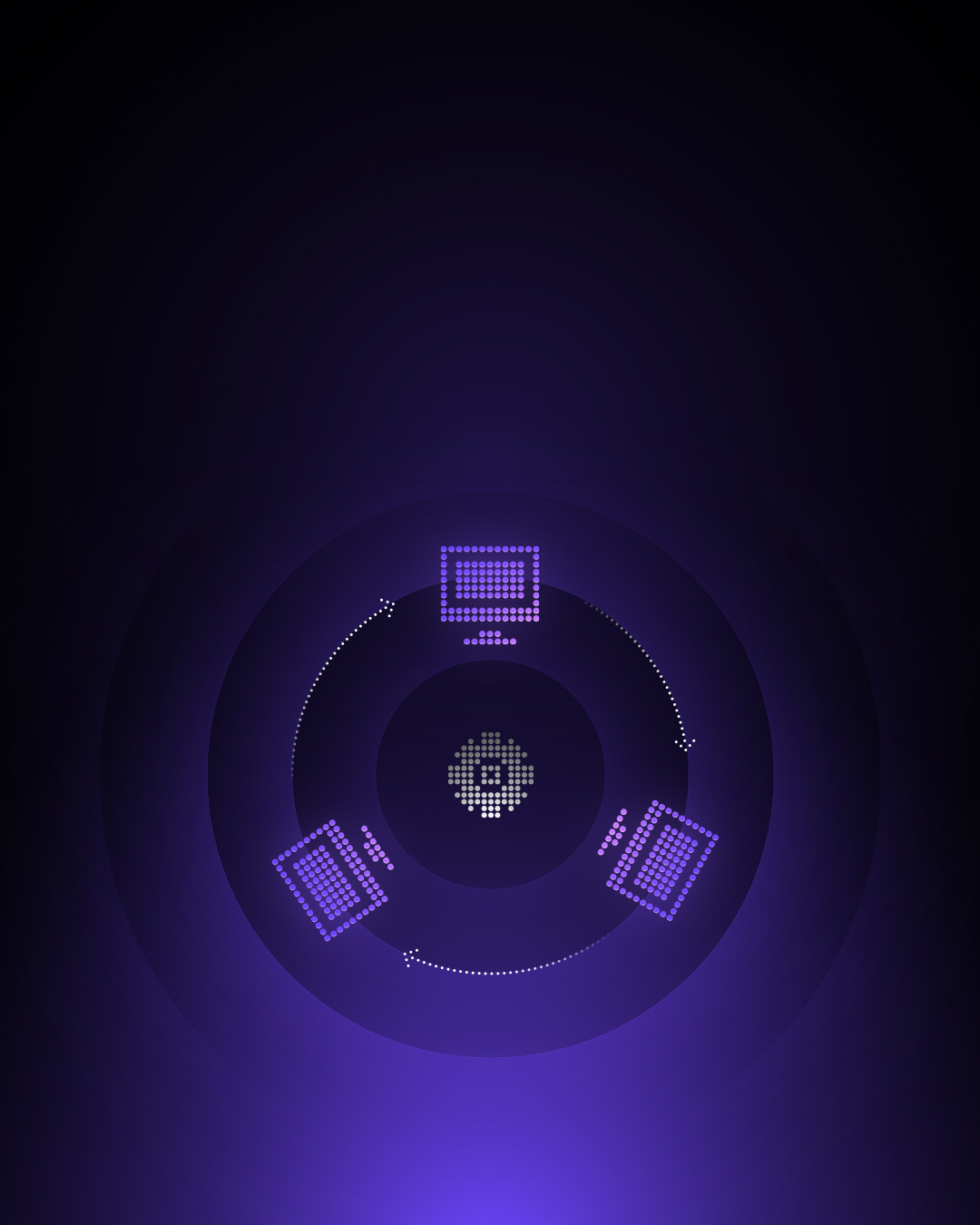
Prediction markets are one of the top applications being built with blockchain on the backend, finding mainstream appeal amongst Web2 users. The 2024 Presidential Campaign alone has surpassed $3B in volume on Polymarket, while many other new entrants such as Drift Protocol have entered the space with their own platforms for predictions.
Despite this growing momentum, existing platforms face major limitations which is the reliance upon trusted entities to create and resolve markets. This restricts the scope of markets that can be created and leaves the system prone to manipulation, undermining user trust.
Arcium steps in as the global supercomputer for a hyper-encrypted internet, offering a flexible and easy-to-integrate Multi-Party Computation (MPC) solution that empowers the creation of permissionless, encrypted prediction markets.
In this article, we will cover:
- The Current Landscape of Prediction Markets: The rise of prediction markets, their use cases, and the challenges faced by existing platforms.
- Arcium’s Solutions: How Arcium leverages Multi-Party Computation (MPC) and encrypted voting to create trustless, permissionless, and secure prediction markets.
- Future Potential: A look at how Arcium’s infrastructure can transform prediction markets and unlock new opportunities for decentralized finance and other industries.
Prediction Markets
A prediction market is a platform where users place bets on the outcomes of future events, ranging from political elections to sports results.
The value of prediction markets lies in their ability to aggregate information, with participants essentially trading shares on different outcomes based on their beliefs and available data. The prices of these shares reflect the probability of a particular event happening. This collective wisdom often results in highly accurate predictions.
For example, speculation over the U.S. election results has surpassed $3.2B in volume.

Polymarket has emerged as one of the leading platforms in the space with clear product-market fit. It enables users to create markets and place bets on various topics, from elections to COVID-related outcomes.
Prediction markets have become so popular that Drift, a popular Solana-based derivatives exchange, recently announced its entrance into the space.
Here's how a prediction market typically works:
- Market Creation: A topic is chosen (e.g., political events, sports outcomes, or global events), and possible outcomes are defined. Each outcome is tied to a specific price that reflects its probability, determined by the market participants.
- Buying Shares: Users can buy and sell shares of different outcomes, with prices reflecting the perceived probability of the outcome occurring. For example, if a user buys shares with an outcome of $0.70, it suggests a 70% likelihood of that event happening.
- Payout: An oracle verifies the outcome, and the winning shares are paid out at $1.00 each, while losing shares are worthless.
Challenges
One of the main challenges in decentralized prediction markets is the reliance on trusted entities, like DAOs, to create and resolve markets. This ensures the reliability of oracles, which are critical for determining the outcome of events. However, this limits who can participate, as only a few approved organizations or operators are trusted to create markets, reducing the platform's accessibility and decentralization.
While platforms like Polymarket allow users to submit market proposals, the final approval lies with the platform’s team, which designs and verifies each market's resolution process. This dependency limits true decentralization and permissionlessness.
An alternative approach involves a majority-based resolution mechanism, where participants stake tokens to vote on the outcome of an event. If the majority votes correctly, the minority gets slashed (loses their stake). While this opens the door for broader participation, it introduces game-theoretic problems, where participants might vote dishonestly if they see early votes leading toward a certain outcome, even if it's incorrect, to avoid losing their stake.
Building Prediction Markets with Arcium
Arcium’s flexible MPC solution allows developers to integrate encryption into any workflow, enabling them to create a privacy-preserving prediction market.
There are 4 key reasons any developer should consider building with Arcium.
1. Permissionless and Decentralized Market Creation
With Arcium, anyone can create prediction markets instead of relying on centralized entities to create them.
The reality is that crypto users love memes and new financial products. Allowing anyone to create a market is a major differentiator from existing platforms and is likely to capture attention based on the types of markets that would be created.
This also decentralizes control while still having the other benefits covered below.
2. Confidential Voting & Trustless Market Resolution
Arcium introduces encrypted voting, ensuring each quorum member votes based on the true outcome rather than game-theoretic strategies. This system incentivizes participants to vote honestly, as they cannot predict or influence the outcome based on how others have voted. By removing the ability to see earlier votes, Arcium eliminates the risk of participants being swayed into voting dishonestly to avoid losing their stake.
Through Multi-Party Computation (MPC), Arcium enables trustless and encrypted market resolutions, offering a secure alternative to traditional platforms that rely on oracles. Unlike centralized oracles, which have been repeatedly susceptible to manipulation, Arcium's decentralized approach allows market outcomes to be determined by participants themselves.
3. Fair Outcome Determination
With votes fully encrypted, no one knows how others have voted, preventing any game-theoretic manipulation. This ensures that participants cannot exploit early voting patterns or shift their votes to align with the majority just to protect their stake. As a result, Arcium offers a robust, transparent, and secure mechanism for resolving prediction markets.
4. Flexibility & Scalability
Arcium’s architecture can support large-scale prediction markets by leveraging its Multi-Party Execution Environments (MXEs) and Arx Nodes. Computations are handled decentralized, enabling efficient processing even as the number of markets and participants grows. This makes it possible for any user to create and participate in markets without overwhelming the network.
Arcium can also easily integrate into existing workflows without disrupting operations, and security configurations can be customized based on needs.
A prediction market built with Arcium would thus look like this:
1. Market Creation: Users create and participate in public prediction markets for any verifiable future event.
2. Visibility: Market activities, including bets and current odds, remain visible to all.
3. Quorum Selection: When the event occurs, a quorum is selected to vote on the outcome.
4. Encrypted Voting: Quorum members submit encrypted votes.
5. Confidential Resolution: Votes for resolution remain confidential until the voting period ends.
6. Outcome Tally: Once closed, votes are decrypted and tallied to determine the final outcome.
7. Stake Penalty: Staking mechanism potentially slashes tokens of quorum members who voted incorrectly.
Start Building With Arcium
Prediction markets are just one of many products that can be built with Arcium. Other interesting use cases include:
- Collaborative Data Analytics: Multiple organizations can compute insights on encrypted data without needing to share sensitive raw data. This is ideal for industries like healthcare or finance, where data privacy is paramount.
- Secure AI Model Training: Organizations can collaboratively train AI models on encrypted datasets without exposing proprietary information.
- Confidential DeFi: Developers can build dApps that ensure user privacy, allowing transactions and smart contract interactions to occur confidentially without sacrificing security or transparency.
- Institutional Adoption: With verifiability and guaranteed execution, the Arcium Network offers a secure infrastructure for large institutions needing to process sensitive data or execute confidential transactions (e.g. payments or trades).
- Private Marketplaces and Auctions: Participants can bid and trade without revealing their identities or the details of their transactions, protecting buyers and sellers from market manipulation.
- Supply Chain Management: Sensitive business data can be protected throughout the supply chain while enabling collaboration. For example, manufacturers and suppliers can securely share pricing and inventory data.
- Healthcare Data: Multiple healthcare providers could collaborate on patient data while preserving confidentiality. This can enable advancements in medical research, improve patient care, and ensure compliance with privacy regulations like HIPAA.
To get started with building, reach out to us via Discord.
.svg)










.svg)




.svg)
























.jpg)





.jpg)

